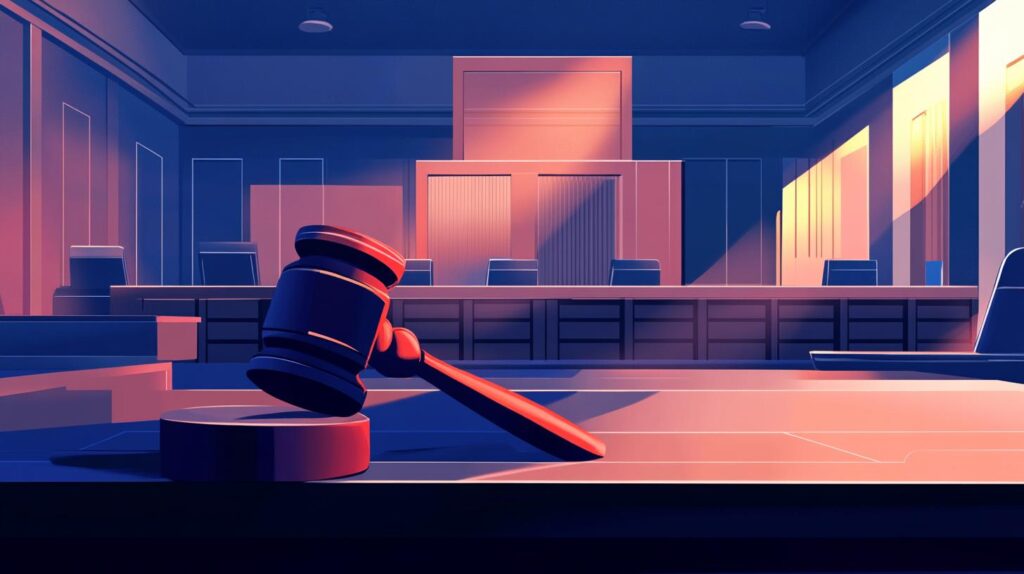California has introduced stringent laws to tackle AI-generated disinformation, banning deepfakes in political advertising and empowering citizens to combat the spread of misleading content ahead of the 2024 election.
California Enacts Landmark AI Legislation to Combat Election Deepfakes Ahead of 2024 Election
California Governor Gavin Newsom has enacted some of the nation’s strictest laws targeting AI-generated election disinformation, aiming to tackle the prevalence and impact of “deepfakes” as the 2024 election approaches. The move, announced during an artificial intelligence conference in San Francisco, includes three significant pieces of legislation intended to curb the spread of deceptive content in political campaigns.
Deepfakes, fabricated videos and images altered by AI to mislead viewers, have become a growing concern in the political realm. California’s new laws expressly ban their creation and use in political advertising close to Election Day. These measures are among the first of their kind in the United States and signal California’s proactive stance against the potential threats posed by AI-manipulated media.
Key Provisions of the New Laws
The first of the new laws, effective immediately, empowers individuals to file lawsuits seeking damages from parties responsible for distributing deepfake materials related to elections. This legal framework allows not just candidates but any affected individual to take action against the spread of such disinformation.
The second law requires large online platforms, including social media giants like X (formerly Twitter), to remove identified deceptive content. This regulation grants state officials the authority to pursue injunctive relief if platforms fail to comply, aiming to ensure swift removal of manipulated election materials.
The third law, effective from next year, mandates that all AI-generated political advertisements include clear disclosures that they have been digitally altered. This is aimed at maintaining transparency and preventing voters from being misled by sophisticated AI manipulations.
Legal Challenges and Criticisms
Despite the legislation’s intentions to safeguard electoral integrity, the new laws have faced immediate legal challenges. A lawsuit was filed in Sacramento on Tuesday by a creator of parody videos featuring altered audios of Vice President Kamala Harris. Represented by attorney Theodore Frank, the complainant argues that the laws infringe upon free speech by potentially censoring content that some individuals might find objectionable.
Governor Newsom’s office clarified that the laws do not ban satire or parody but require proper disclosure of AI alterations. In a statement, Newsom spokesperson Izzy Gardon compared the new regulations to similar laws in other states, emphasising their necessity in combating misinformation.
Elon Musk, owner of X, has also voiced strong opposition, describing the law as unconstitutional. Musk highlighted the disclosure requirements as a violation of First Amendment rights. Newsom’s prompt reaction to Musk’s sharing of an AI-generated parody video of Harris further fuelled the controversy.
Implications and Future Outlook
California’s measures come at a pivotal moment, with the upcoming 2024 US presidential election looming. The laws are designed not only to prevent voters from being misled but also to bolster trust in the electoral process amidst an increasingly fraught political atmosphere. According to Assemblymember Gail Pellerin, whose bill was among those signed into law, the objective is straightforward: ensuring that voters are aware when content has been digitally manipulated for satire or parody.
However, the efficacy of these laws remains uncertain. Ilana Beller from Public Citizen, a nonprofit consumer advocacy organization, pointed out that the speed of the legal system may not match the rapid dissemination of deepfakes. Courts taking several days to issue orders to remove content could result in damage being already done by the time action is taken.
Global Context
California’s legislative actions are part of a broader global trend of governments seeking to regulate the use of AI and combat the spread of deepfakes. Australia, for instance, introduced a bill in June 2024 criminalising deepfakes involving non-consensual sexually explicit content. Similarly, India and China have also taken steps towards regulating the use of AI to prevent societal harm.
The new laws in California mark a significant step in addressing the challenges posed by AI in the political arena. While their impact will unfold over time, the state’s commitment to ensuring the integrity of its electoral process is clear. As other states and countries continue to grapple with similar issues, California’s approach may set a precedent for future legislative efforts globally.
Source: Noah Wire Services

